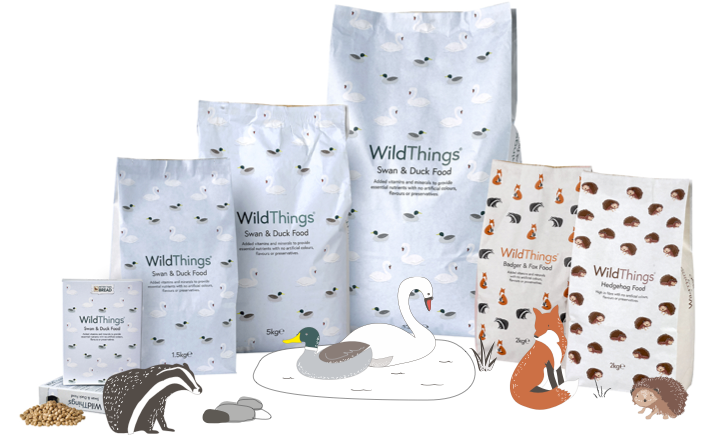8 things you can do to become more eco-friendly
28th January 2021

One of the best things about the UK is our beautiful surroundings and the wild animals that inhabit them. Over the last few decades, our environment has taken blow after blow, putting the nation’s wildlife at risk and causing considerable damage to their livelihood. At WildThings, we know just how important it is to take positive steps towards becoming more environmentally aware. Read on for 10 things you can do to become more eco-friendly in 2021.
Use recyclable products
We all know that non-recyclable products damage our environment but it is crucial to understand the reasons why. Plastic in particular contributes to global warming and its longevity makes it hard to get rid of. Discarded plastic spreads toxins and can threaten wildlife in numerous ways. When doing your weekly shop, always aim to buy products that have the recyclable logo on them then make sure you recycle them correctly; it doesn’t take much to do this but small changes in your everyday life can have a huge impact when applied on a mass scale.
Choose natural ingredients
Synthetic ingredients, when used and washed down the drain often end up in the ocean, which has a domino effect on our environment. These chemicals can be toxic and have a negative impact on nature and threaten biodiversity. When in doubt, choose shampoos, conditioners and soaps that are made from natural, biodegradable ingredients. We live in a day and age where it’s never been easier to find exactly what you’re looking for- take advantage of this and take pride in knowing you’re doing your part to protect local wildlife!
Forgo fast fashion
Sure the prices are attractive, but fast fashion has quite a damaging effect on our environment. Clothes are being mass produced in enormous quantities using synthetic fibres- which can be very harmful when ingested by animals. Before buying new clothes, it’s worth checking what they’re made of and avoid textiles such as polyester. Many fashion retailers are becoming more eco-friendly so look for labels that are making a concerted effort to reduce emissions and water pollution.
Say no to plastic straws
It’s great news that the UK has confirmed a ban on single-use straws. As it turns out, people in England use an estimated 4.7 billion plastic straws, 316 million plastic stirrers and 1.8 billion plastic-stemmed cotton buds each year. This has a catastrophic impact on wildlife and biodiversity to say the least. Say no to plastic straws anytime you’re offered them and invest in a metal or bamboo straw instead. Added bonus- you can actually use these kinds more than once!
Go digital
We live in the 21st century; printing just isn’t necessary most of the time. You can minimise your carbon footprint by keeping things digital. Sure, we all like to have conversations around the printer, coffee in hand (at least before Covid-19, anyway) but if you don’t need to print, then don’t. Most companies will now allow you to make the change to e-bills too, so it’s worth doing that if you haven’t already.
Conserve water
An abundance of fresh, clean water is crucial for biodiversity to thrive. We often use more water than we need without even realising it and as much as we all love a nice hot bath, we aren’t doing our environment any favours. Take shorter showers, make sure the tap is off when you brush your teeth and use a washing up bowl for dishes rather than leaving the water running. All these little things add up in the long run!
Grow, grow, grow
Growing your own fruit, vegetables and plants can have a positive impact on the environment. It is more sustainable to eat food you’ve grown yourself and the addition of plants to your garden can offer safety, shelter and sustenance for wildlife. You can go one step further by researching what plants are native to your specific area and support the local ecosystem by growing them and allowing them to thrive.
Respect your local wildlife
If you’re even reading this article we’re willing to bet you’re passionate about wildlife. However, these are wild animals we’re talking about and they need to be treated as such. It is important not to interfere with their habitats when you’re out on a walk or try to pet a roaming hedgehog. Unless the animals are in trouble in some way, respect their boundaries and let them thrive doing what they do best.
Are you taking steps to becoming more eco-friendly in 2021? Connect with us on social and share what you’ve been up to!


